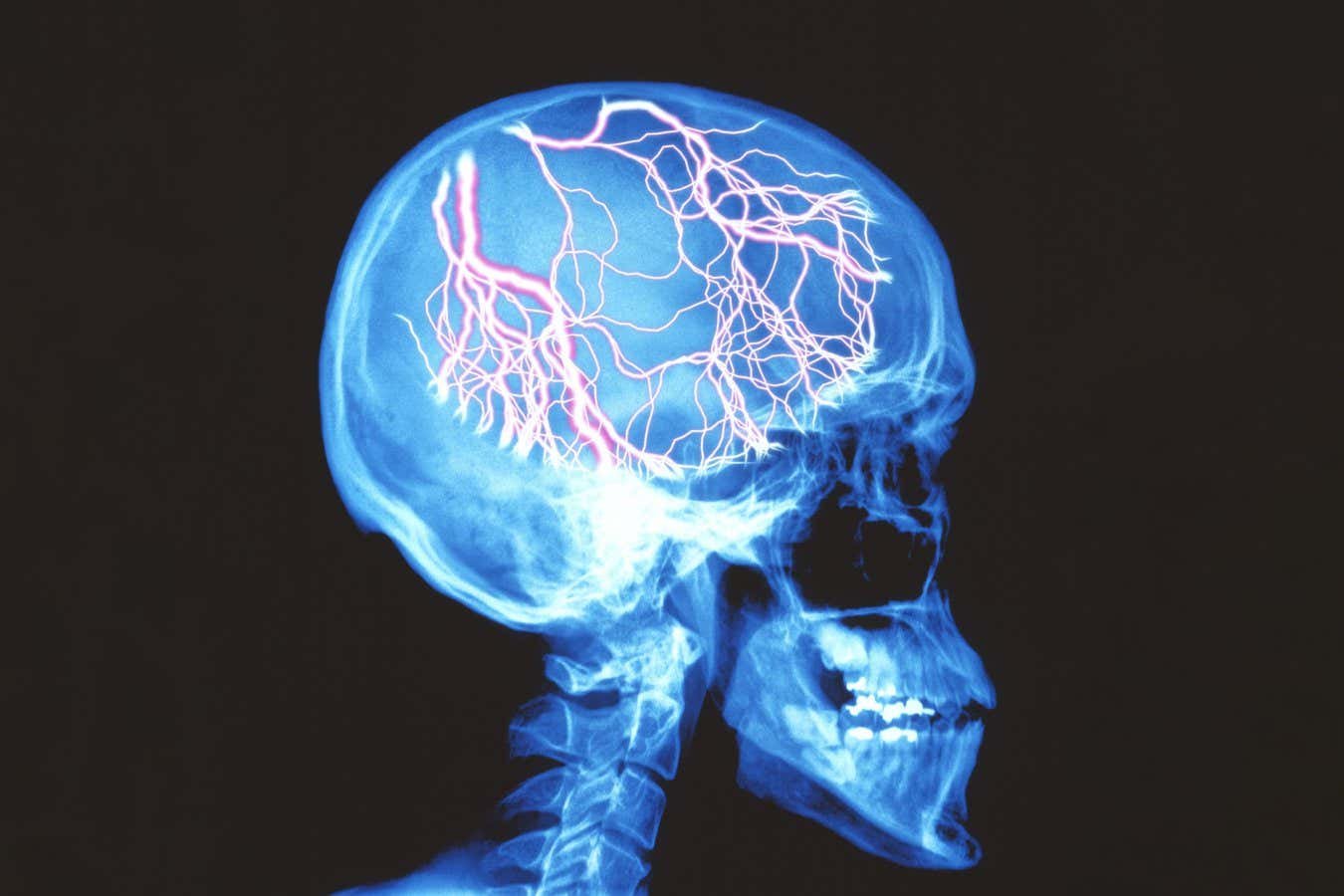The intense pain of a migraine can seriously affect a person’s daily life
Alfred Pasieka/Science Photo Library
A drug called Ubrogeper already used to treat migraines has now been shown to reduce the non-headpost symptoms that often affect the hours that precede a migraine that creates it the first substance known to work on theses.
Before the weakening headache of a migraine frame, many people experience a prodrome phase where they get warning signs, such as sensitivity to light or sound, dizziness and neck stiffness, which can cause significant disturbance in daily life on theirs.
Developers of migraine medicine have so far focused on treating the headache itself, and no therapies have been effective in relieving these symptoms.
But Ubrogagant has shown a promise to stop migraine headaches if taken when the early symptoms strike, and promotes Peter Goadsby at King’s College London and his colleagues to look at whether it can remove them as well.
They ran a study with 438 people aged 18 and 75 who had a history of migraines. Half of the participants took a 100-Millicram dose of UbroPager when they felt symptoms suggesting that a migraine headache was on the way while the other half unconsciously took a placebo. Then, the next time prodromal symptoms hit, the participants took the opposite pill.
After taking Ubrogepant, they reported self -improvement in their ability to concentrate an hour later, as well as reduced sensitivity to light 2 hours later and less fatigue and neck pain after 3 hours compared to what they experienced when they took. Participants reported that dizziness and sensitivity to sound also diminished as they took Ubrogageant.
“If they took Ubrogeper, it was more likely that people had a reduction in these non-non-saving symptoms even before the bread starts,” says Goadsby.
The study did not investigate the effect of the drug will have, another early migraine function involving sensory disturbances that can affect vision, such as flashing light and blind spots.
“Given that common prodromal symptoms are often functionally deactivating, the potential to intervene earlier in the migraine -casket is clinically meaningful,” says Parisa Gazerani at Oslo Metropolitan University in Norway. Further studies are needed to confirm that it is largely applicable, she adds.
“This research shows the potential of migraine treatments to reduce these symptoms as well as preventing the hand pain of handaching in an attack,” said Rob Music, who leads migraine confidence in the UK. “We seem to see further research in this area to help reduce the impact of migraine for 1 in 7 living with the condition.”
Topics:
